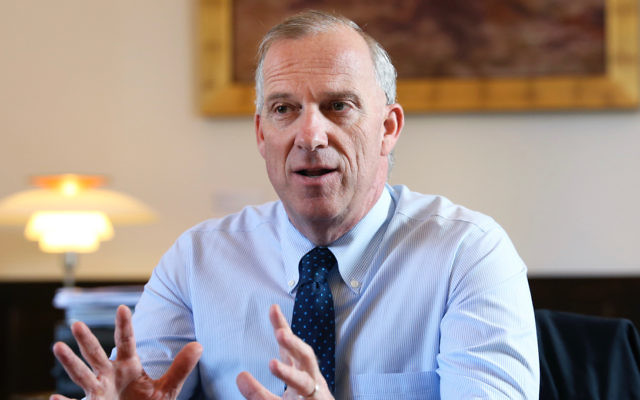Sydney Uni ‘concerned’ by student claims
The University of Sydney says it is “extremely concerned” following an alleged incident in which a student was interrupted mid-way through an assessed class presentation after they started talking about the link between modern anti-Semitism and anti-Israel activism.
THE University of Sydney says it is “extremely concerned” following an alleged incident in which a student was interrupted mid-way through an assessed class presentation after they started talking about the link between modern anti-Semitism and anti-Israel activism.
The tutor reportedly told the student – who is not Jewish and was studying The Holocaust: History and Aftermath – to skip the rest of the presentation, stating: “We don’t want people to get the wrong idea about you.”
The AJN understands the student feels they were unfairly treated and given a low mark as a consequence of expressing their opinion. They have since pulled out of the subject.
A spokesperson for the university told The AJN, “All students are entitled to complain about inappropriate comments by a staff member. If the media reports are accurate, the university is extremely concerned and would like to investigate this matter further.”
The spokesperson said the university “does not seek to avoid politics in lectures, but rather to engage students in constructive, informed debate that presents any issue, including political issues, from a variety of perspectives”.
Matthew Lesh, research fellow at the free market think-tank the Institute of Public Affairs, said it is “disgraceful” that a student was prevented from making a legitimate academic point in class.
“Students should be free to express their views in class, not interrupted and punished. This incident is sadly just another disturbing attack on freedom of speech on campus,” he insisted, adding that our universities are increasingly becoming “closed intellectual shops, where only certain ideas are allowed to be expressed and the rest are silenced”.
“Universities must, in order to fulfil their core educational and research tasks, be places where differing ideas are allowed to be expressed and debated,” Lesh noted.
NSW Jewish Board of Deputies CEO Vic Alhadeff commented: “It’s outrageous that a student would be warned against creating a link between modern anti-Semitism and anti-Israel sentiment.
“Not only is this a suppression of valid discourse, but it’s academically dishonest and denies the fundamental truth that such a link exists.”
Speaking to The AJN earlier this year, university vice-chancellor Dr Michael Spence said it troubles him if a student is not able to express their own opinion freely, if there’s evidence that they are being penalised in their marking for holding a particular opinion, or if their lecturer is involved in behaviour that breaches the university’s codes of academic standards.
“We take the concerns of students that they are being treated unfairly by either staff or other students incredibly seriously,” he said.
The university spokesperson told The AJN, “Unfortunately the media queries from journalists have not identified a student or a lecturer, and we are not aware of a complaint of this nature, and so it is difficult to progress this matter further at this stage.”
AUJS is working with the student involved to take the matter to the relevant authorities at the university and seek appropriate action.
EVAN ZLATKIS


comments